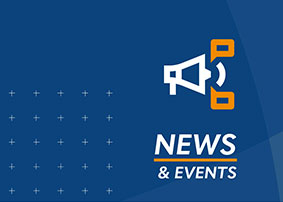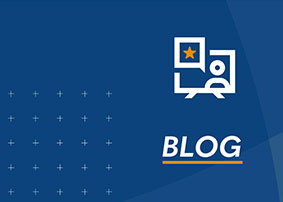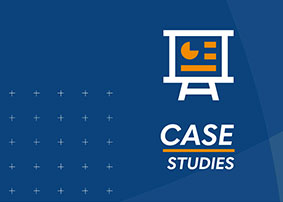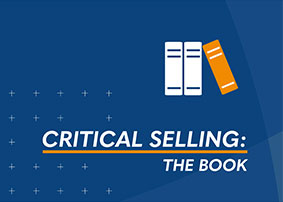One Year Ago: Sales Lessons From the Pandemic

In The Life of Reason: The Phases of Human Progress, philosopher, poet, and novelist George Santayana famously wrote, “Those who cannot remember the past are condemned to repeat it.” Perhaps nothing attests to the truthfulness of this than its many misquotes and incorrect attributions. However, regardless how it’s used, it certainly applies to the sales landscape emerging from the pandemic that forever changed our world. For many sales professionals and organizations, 2020 will be remembered as the year Virtual Selling went from flashy tag to literal necessity. Now, in conjunction with our recent blog One Year Ago: How the Pandemic Disrupted Sales Teams, it is incumbent on us to reflect on some lessons from the pandemic that can make us all better sellers in the future.
More Personal
Though many sales pros said Selling Virtually would never replace face-to-face, that point quickly became academic. With countless closures and restrictions, even the most traditional sellers had no choice but to transition into virtual. Although consultative selling, a sales approach characterized by personal relationships, was dominant before the pandemic, virtual selling proved a valuable complement. Suddenly, as sellers and buyers established virtual stages that invited their counterparts into their homes, it became easier to bond. Things like décor and the sounds of family—kids, pets, the soundtrack to Frozen—helped us connect on a more personal level than we did in the office.
Flexibility
Sales managers know the best reps are often the most flexible. These are the ones who can adapt the quickest to changes in the sales environment or switch between clients and industries. While this remained true in the pandemic, many companies soon questioned the flexibility of their sales teams and organizational structure. In addition to playing musical chairs with leadership and management, organizations, like their reps, were forced to do more with less. The transition into remote work was greater than just a change of scenery; it required both patience and flexibility. In many ways, this was a top-to-bottom team effort that forced a rethink of priorities that will remain.
Open Mindset
Always a top attribute of sales pros, an open mindset took on a greater importance during a once-in-a-lifetime global emergency. In addition to being open to change and thinking outside the box, sales professionals had to take off their sales hats and find better ways to be trusted advisors. This meant more frequent check-ins, not to push products, but to show they care. Also, in addition to sharing articles and news germane to their clients, open-minded reps also shared personal information and helpful tips. Learning and growing at an accelerated pace, they took decisive action, held themselves accountable, and moved beyond the status quo to be their best for their organizations and clients.
Embrace Technology
At every level, from BDR to SMB to the alphabet soup of the C-suite, reps and organizations must master technology. A global economy requires the ability to communicate and collaborate 24 hours a day, from wherever we find ourselves working. No longer can organizations wait to upgrade, merely servicing and maintaining older equipment. Like a sales team, technology must be periodically refreshed and replaced. Whether it’s moving desktops from work to home or borrowing company laptops, there’s no excuse for dial-up DOS machines. Also, as the distinctions between work and home blur, reps must have access to technical support, regardless of where they log on.
Do Not Panic
A lesson that should not be overlooked is do not panic. While sales organizations have experienced difficult economic times, such as downturns, recessions, shocks, and busts, the pandemic was unlike anything we had seen. It would have been easy to stand flatfoot until some authority told us what to do. Instead, sales leaders remained clear-eyed and forward thinking. They leveled with their employees and clients and worked to reorganize personnel or renegotiate agreements. Just as top sales professionals don’t let roadblocks derail a sale, top organizations took immediate action to mitigate not exasperate or, as the famous British World War II poster declared, “Keep calm and carry on.”
As we emerge from our long, strange trip, Santayana’s words ring louder, not in the dark and ominous way they’re often used—beware that word “condemned”— but for sales professionals and organizations, like a message of hope. In many ways, the pandemic didn’t teach sales pros anything they didn’t already know about teamwork or helping others. Salespeople do this daily. However, the most vital lesson of the pandemic is the reminder how important these things are, for our organizations, our clients, and for ourselves. For more information, download our white paper How to Build a Top-Performing Virtual Sales Team.

- Account Planning (16)
- Awards (42)
- Client Testimonial (37)
- Personal Branding (21)
- Podcast (12)
- Research (77)
- Sales Career Development (90)
- Sales Coaching (165)
- Sales Consulting (141)
- Sales Culture (181)
- Sales Enablement (380)
- Sales Leadership (112)
- Sales Management (268)
- Sales Negotiation (11)
- Sales Prospecting (136)
- Sales Role-Playing (19)
- Sales Training (242)
- Selling Strategies (279)
- Soft Skills (78)
- Talent Management (101)
- Trusted Advisor (29)
- Virtual Selling (57)
- Webinar (13)




























